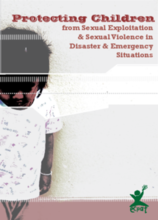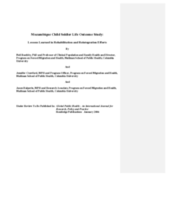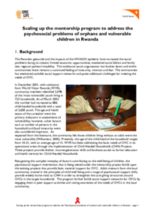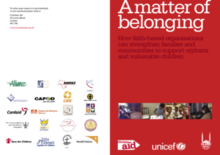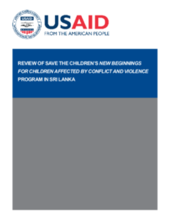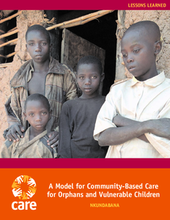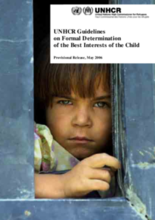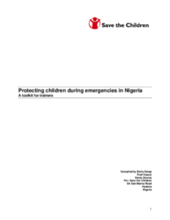Displaying 451 - 460 of 532
Evaluation of four child-focused DDR projects funded by the World Bank Multi-Country Trust Fund in the DRC. Includes detailed strategic analysis and recommendations.
A practical guide for local and communtiy based organizations about how to protect children from sexual abuse and exploitation in disaster and emergency situations.
Preliminary findings on life outcomes of Mozambican former child soldiers. Identifies specific interventions important to enabling former child soldiers’ recovery and reintegration.
Outlines the results of World Vision Rwanda’s mentorship program for children in child-headed households and other OVC. Includes challenges and lessons learned.
The report details the scale and nature of migritaion by children entering the United States. It includes policy analysis and recommendations around the protection of seperated and unaccompanied children.
A guide for faith-based organizations working in developing countries on issues related to orphans and vulnerable children. Contains examples of successful community-based and family support care programs throughout the world that are run by faith-based groups. Discourages the use of institutional care and orphanages.
An evaluation of a programme in Sri Lanka that aimed to resettle and reintegrate children affected by armed conflict, prevent and respond to child abuse, and develop community based alternatives to institutional care.
A lessons learned document reviewing impacts of a community-based care and mentoring program for child-headed households in Rwanda.
Guidelines for when and how to make a decision regarding the best interests of the child in the case of emergencies. Includes useful information for addressing unaccompanied and separated children including, temporary and alternative care arrangements, tracing and reunification, and child participation.
A comprehensive training toolkit for organizations and individuals who are directly involved in child protection and welfare during emergencies. Covers key topics related to children in emergencies, and includes learning points, classroom and field exercises, suggested itineraries and handouts.

